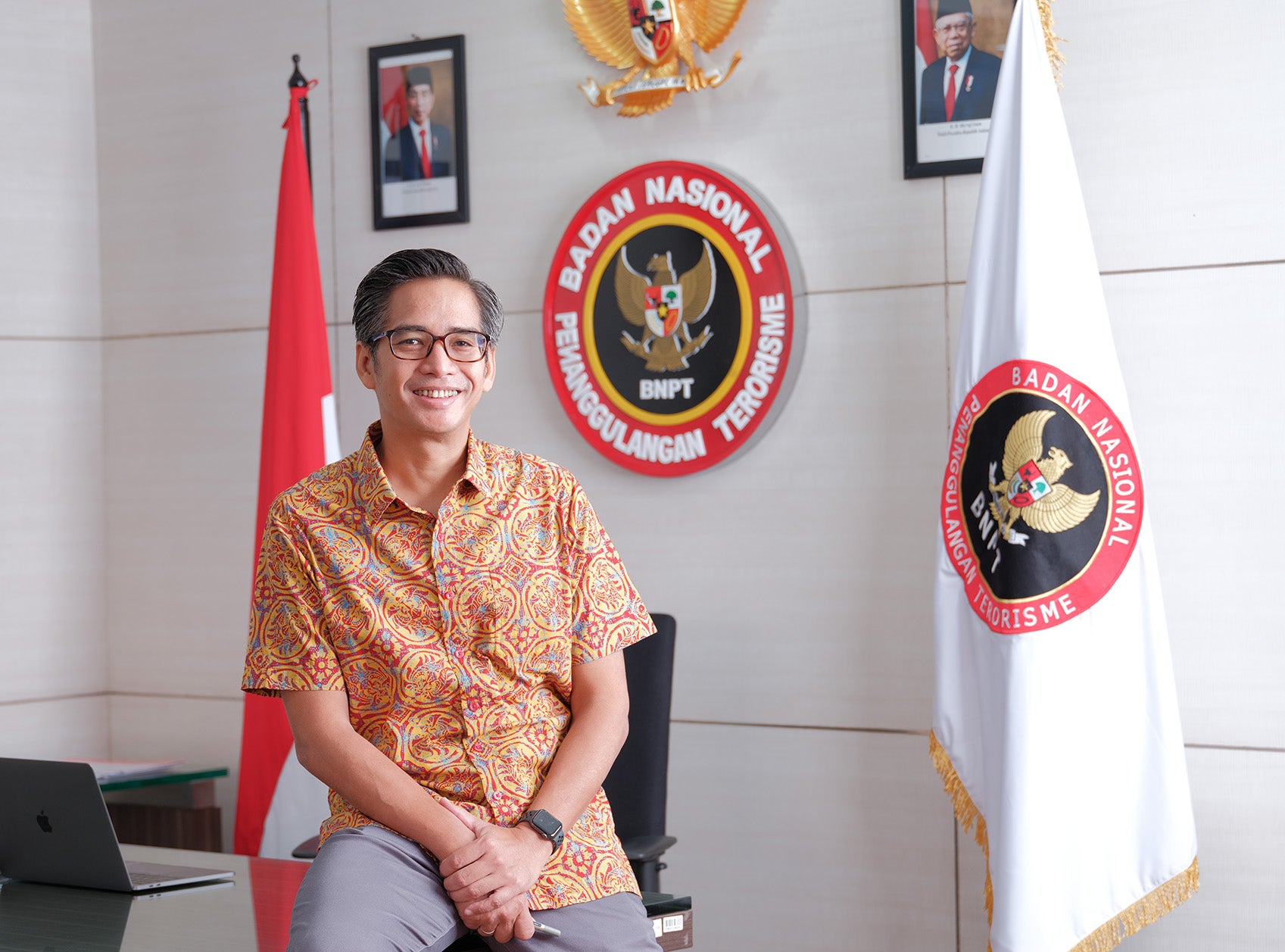Take Five: “Women are more suitable actors in the prevention of terrorism and violent extremism”
Date:
Interview by Yoomi Jun

Andhika Chrisnayudhanto is Deputy for International Cooperation of the National Counter Terrorism Agency (BNPT) of Indonesia. He is the chair of the Senior Officials Meeting on Transnational Crime (SOMTC), Working Group on Counter Terrorism, of the Association of Southeast Asian Nations (ASEAN). The Working Group on Counter Terrorism led in developing the ASEAN Bali Work Plan 2019-2025 on countering extremism. BNPT partnered with UN Women on the report, Gender Analysis of Violent Extremism and the Impact of COVID-19 on Peace and Security in ASEAN.
How was a gender perspective brought into the development and implementation of ASEAN Bali Work Plan 2019-2025?
Since the ASEAN Plan of Action to Prevent and Counter the Rise of Radicalisation and Violent Extremism 2018-2025 was adopted, there was a need for cross-pillar collaboration for its implementation. As the Chair of the SOMTC Working Group on Counter Terrorism, Indonesia convened 19 ASEAN sectoral bodies to develop the Bali Work Plan as the implementation framework for the ASEAN Plan of Action - the largest initiative in ASEAN. The bodies included the ASEAN Committee on Women (ACW) and the ASEAN Commission on the Promotion and Protection of the Rights of Women and Children (ACWC), which advised on whether the Bali Work Plan adhered to the principles of gender equality and women’s empowerment. These organizations even implement some of the plan’s activities.
Why was it important to do the gender analysis of violent extremism and the impact of COVID-19 on peace and security for Indonesia?
In Indonesia, there is a worrying trend of radicalization among women, younger women in particular. In 2020, we did a survey in 32 provinces that found that younger women were prone to be more radicalized than their male peers.
For example, in 2014-2015 police apprehended only three women, but in 2016-2022, around 40 women. We also see a rise among women partaking in terrorism acts, including suicide bombings, for example in Surabaya, Sibolga and Makassar, and in 2021, the bombing at the police headquarters in Jakarta.
This worrying trend is not only happening in Indonesia but also in the region. The research told us why women were becoming radicalized, whether because of toxic masculinity or because of misogyny, and why women are susceptible to engaging in violent extremism acts.
How can the research inform Indonesia’s policies on preventing and countering violent extremism, especially to support women during COVID-19?
When Indonesia drafted the National Action Plan on Preventing and Countering Violent Extremism that Leads to Terrorism, we worked closely with UN Women and with experts who provided policy advice based on gender-sensitive analysis. This was important as we are seeing women and men being exposed to or going through radicalization in different ways. The research helped us to understand that a national action plan requires not a one-size-fits-all approach but a gender-sensitive one that caters to the needs of individuals.
What are the key achievements of the National Action Plan of Indonesia?
One of the most important achievements is that we collaborated with 48 ministries and agencies in addition to our close work with local governments. In 2021 alone, 37 CSOs (civil society organizations) joined the ministries in implementing the plan. I’m very proud to say that women-led CSOs, for example, AMAN (Asian Muslim Action Network), are playing major roles in implementation.
Wahid Foundation is also doing a great job with the Peace Village Initiative in partnership with UN Women. Strategically, women are more suitable actors in the prevention of terrorism and violent extremism. The Peace Villages are engaging women to prevent violent extremism, and BNPT is following the same strategy.
Women have a dual role, namely a domestic role in strengthening family and environmental resilience, as well as a role in early detection and prevention of extremism. The best practices developed at the grassroots show that empowering women's communities is quite effective in growing women's groups as actors to build social cohesion, resilience and tolerance.
How is Indonesia advancing ASEAN’s development of a Regional Plan of Action on Women, Peace and Security, especially in preventing violent extremism?
We are very much engaged in this agenda. As the Chair of the SOMTC Working Group on Counter Terrorism, we raised the issue of violent extremism at the meetings, given the rising number of women perpetrators in terrorism. Indonesia is also supporting the ASEAN Institute for Peace and Reconciliation and the Southeast Asian Network of Women Peace Negotiators and Mediators. The Ministry of Women’s Empowerment and Child Protection offered to chair the ASEAN thematic group to draft the regional plan of action.